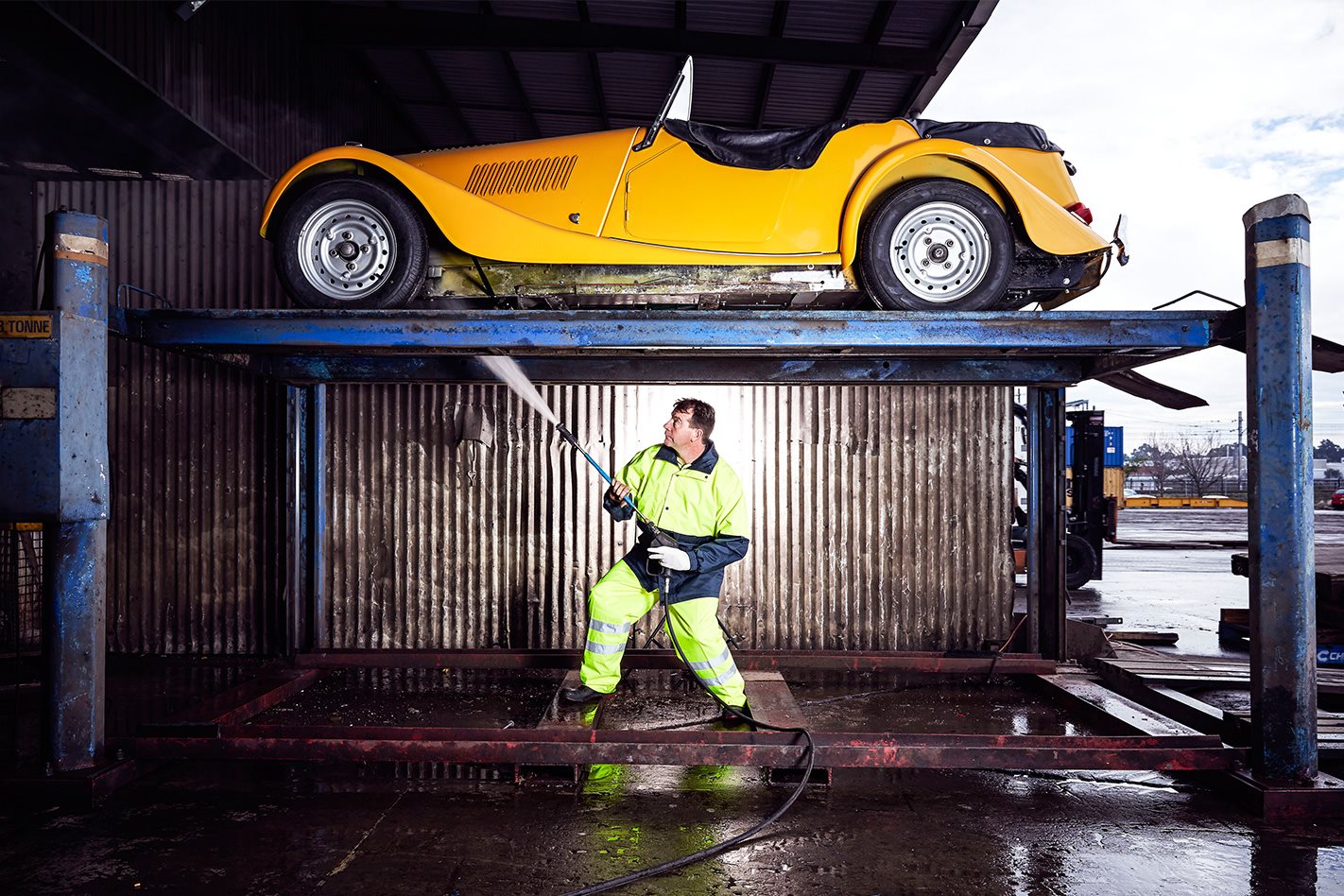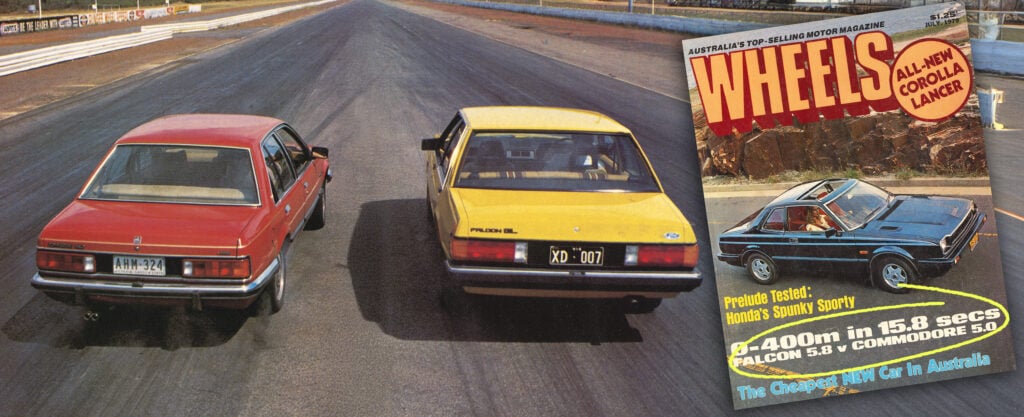There’s driveway clean, or ninety bucks and a cappuccino clean. But above all other classes of car washing, there is quarantine clean. And that’s where we meet Craig Scott, the Gerni guru of Sydney’s ANJ Container Services.
First published in the September 2013 issue of Wheels magazine, Australia’s most experienced and most trusted car magazine since 1953.
All vehicles being imported to Australia – used or new – must pass DAFF (Department of Agriculture, Fisheries and Forestry) inspection before being released. It’s about ensuring that vehicles are properly rid of soil, dung, plant matter or anything else that might bring asylum-seeking bugs or bacteria with it.
Craig, a self-confessed Commodore man, gives the deep douche to around 40 cars per month and about 15 items of heavy machinery, which often includes vintage aircraft parts. “There’s a lot of Japanese imports, like Nissan Skylines, Honda Civics, Nissan Elgrands … We do a lot of American cars as well, classic Mustangs, things like that. This week I’ve done three Chevy and GMC pick-ups.”
He works alone in a hoist-equipped, quarantine-approved wash bay. The car first goes up on the hoist and the underbody is jet-washed, with special care taken to get into chassis rails and dirt-trapping cavities. Afterwards he does the engine bay and boot. If there’s dirt or pet hair inside, he swings into action with a vacuum.
“Steam cleaning is just an expression. I use a Gerni that runs about 2700psi, and depending on how dirty it is, I’ll use cold or hot water. My system goes to 140 degrees C, which does tend to drip on you and burn a little bit. I use that to get grease and stuff off.”
No degreasers or chemicals are used, because the idea is to trap any nastiness in a collection pit. “There’s always a concern, especially if you think about something that comes from the UK, and it may be earthmoving equipment … there’s foot and mouth disease, for instance.”
A straightforward car job might take 20 minutes. Longest was an excavator from the UK: “It took me five days. It had 365kg of dirt in it – I had to weigh the dirt. The client had documentation to show Quarantine that he had paid to have it cleaned overseas, but it wasn’t. That happens every single day.”
There’s regular eye-candy, though: “We get Lamborghinis through here, Aston Martins, Ferraris, usually older-style ones … maybe once every six weeks you get cars like those. And we had the car from the movie The Green Hornet, and Ken Block’s little gymkhana Ford.
“It doesn’t matter how they come through, for whatever purpose – if they’re untidy, they need to be cleaned up.”
The job has unexpected hazards. “I was doing an aeroplane fuel cell, and I could hear something moving around. I reached in and got stabbed in the hand – I thought I’d been bitten. It was the skull of a Mongoose and I’d stabbed myself on its teeth. So you’ve got to think of rabies and things like that.”
It is generally a dirty job. “I put on a special suit, like a motorbike rider’s rain suit, I keep that zipped up to my neck.
What we need to do is confine the contamination to the wash bay. Ninety percent of the time you’re covered from head to toe in grease or dirt.”
Craig, a father of three, took on the job after a period of unemployment.
“The position was available, so I made the enquiry. I think as a father, as a husband, we need to take responsibility. It doesn’t matter what the job entails, if we have people to look after, if it means belittling ourselves, you take whatever’s available.
“It was probably the best decision I made at that time of my life. These are incredible blokes that I work with. It makes every day easier, you’re able to have a good time and enjoy the day’s work.
“I’m very careful with other people’s property. I take it very seriously and I love what I do.”





